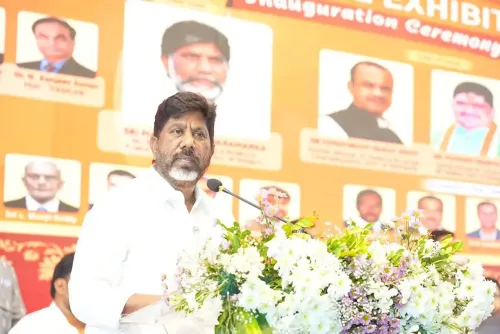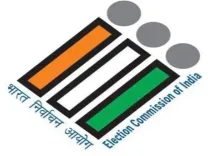Why is Pakistan Criticized for Listing Activists Under Anti-Terrorism Act?

Synopsis
Key Takeaways
- Pakistan's Anti-Terrorism Act includes the Fourth Schedule that restricts individuals deemed 'proscribed.'
- The recent list has drawn significant criticism from civil society and rights groups.
- Activists argue this is a misuse of laws aimed at suppressing political dissent.
- Human rights organizations are calling for transparency and legal due process.
- Political parties urge the government to reconsider its approach to activism and dissent.
Quetta, Nov 7 (NationPress) Pakistan has categorized numerous political and human-rights activists, including relatives of victims of enforced disappearances in Balochistan, under the Fourth Schedule of the nation’s Anti-Terrorism Act, eliciting significant backlash from civil society and advocacy organizations, according to local media reports.
The Balochistan Home Department, in a recent announcement, asserted that the list was compiled to “enhance law and order” and “monitor dubious activities.”
The updated roster includes Mahzaib Baloch, a human-rights advocate and niece of the forcibly disappeared political activist Rashid Hussain; Advocate Shahzaib Baloch, the central organizer of the National Democratic Party (NDP); Imran Baloch from the Baloch Yakjehti Committee (BYC) Hub; and Arif Baloch of the Baloch Students Action Committee (BSAC), alongside approximately 60 other activists and community figures, as reported by The Balochistan Post.
The Fourth Schedule, established under Pakistan’s Anti-Terrorism Act of 1997, designates individuals as “proscribed persons,” imposing restrictions such as passport bans, frozen bank accounts, financial support embargoes, suspension of arms licenses, and employment limitations.
Historically, the Fourth Schedule targeted “hardcore militants and members of banned organizations”; however, rights organizations argue that its application in Balochistan has broadened to encompass political workers, students, and human-rights advocates, labeling it a “concerning misuse” of anti-terrorism legislation.
In response, Balochistan’s National Democratic Party (NDP) condemned the Pakistani authorities for designating political activists and human rights defenders under the Fourth Schedule, branding it “unconstitutional, undemocratic, and indicative of an authoritarian mindset.”
“This act essentially acknowledges that political and democratic forces in Balochistan have become more robust than state repression. Whenever public awareness rises, the government resorts to mechanisms like the Fourth Schedule to criminalize political thought,” stated the NDP.
Condemning the action, the human rights organization Baloch Yakjehti Committee (BYC) characterized it as an attempt to extinguish the Baloch public struggle through force.
“This measure is not only unlawful but also signifies a perilous trend aimed at stifling peaceful political endeavors, silencing legitimate dissent, and criminalizing those advocating for human rights, justice, and political freedoms,” read a statement from the BYC.
“The names of countless Baloch political and human rights activists, including those associated with the Baloch Yakjehti Committee, have been included in the Fourth Schedule without transparent processes, legal justification, or fair judicial procedures. The number of political workers being added to this list continues to rise,” the statement further noted.










